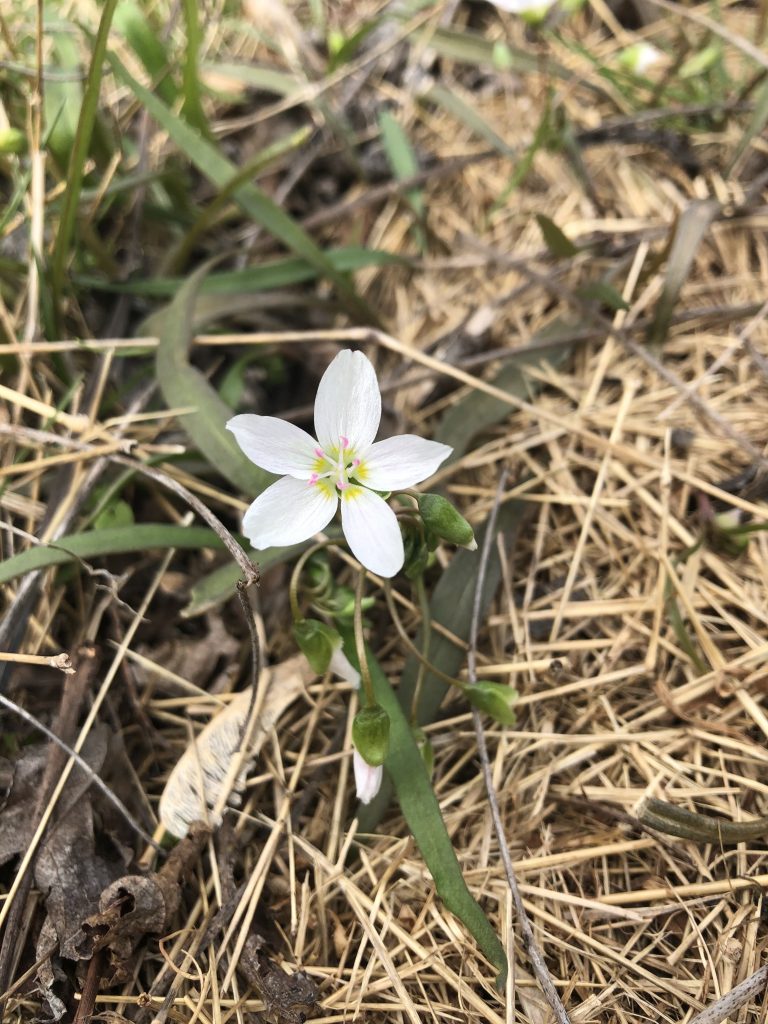April 5, 2020
At the beginning of this crisis I was worried about my students. I am not so worried about them now. Sure, their childhood and education have been interrupted by this bizarre episode. But they have the protection and guidance of angels. Those that chose to come into the world at this point in time will be given tools and opportunities to overcome the challenges that have been put in their way. We hope to God that we play a beneficial role in those opportunities, that we are one of the good tools; but even if we fail, the children will have other resources.
The adults? Now THERE is a bigger question. We are free, which means we have to create the space and the movement to generate the ideas and inspire the actions that can meet the moment. Spiritual work is always a free deed, beset by every form of personal weakness we have. And when we spend our days teaching, preparing, “meeting”, and otherwise being available through the medium of electronic devices, the inner determination needed to make room for spiritual work becomes that much more difficult to muster. Electronic devices beget a nervous energy, and a kind of irritability that makes internet trolls something we can readily understand even if we choose to avoid becoming one. I don’t like using mechanical imagery for human soul activities, but it often feels like Zoom meetings (even lessons) create a soul “frequency” that saps energy and requires a concerted effort to recover from (sorry, grammarians). On top of that, well-meaning people inundate us with content, best practices, funny videos, (and Ruminations) to the point where we feel overwhelmed and exhausted by thinking about all the things we haven’t read or streamed. Our practices, beshrew our ignorance, may not be the best. Alas!
Moving on: I would like to dwell mainly on relationships today, especially in connection with the question of rhythm. Relationships really ARE rhythm, and rhythm really is a relationship between, at the very least, two elements: ebb and flow. But the secret of healthy rhythms is that there is always a third element. In the rhythm of night and day we have the dawn and dusk; in the rhythm of quiet breath at night, there is a moment of rest after the exhalation; in healthy farming there is the fallow year; in conversation there is silence.
In a healthy life of soul, between activity (thinking, feeling, and acting) and rest, there is boredom. Boredom, good boredom, generates a vortex in the soul, inviting imagination.
Among the many forms of harm that humanity has inflicted upon itself through the creation of the wired and wireless world, the disappearance of good boredom is one of the most consequential. Sure, we get bored today, on occasion, when every streaming option from Netflix to YouTube, email, text, and computer game have been tried and ruefully discarded. But it is a nervous, exhausted, depleted kind of boredom. Good, effective boredom is peaceful, even if there is almost always a tinge of guilt that comes along with it.
In the absence of boredom, the new beginnings we generate run the risk of being derivative. To borrow from the musical world: we don’t generate new themes, only variations. In spiritual practice as Rudolf Steiner describes it there is the moment when the mind, fully awake, relinquishes the image or understanding that has been built with great effort, only to face the complete absence of everything: no light, no image, no sound, only a great void. If in the course of preparation sufficient forces have been created, those forces now stream out form one’s soul and slowly illuminate the spiritual beings that surround us all the time. From them, genuinely new beginnings can be made on earth. We can even employ those beginnings in the service of others.
I would like to draw a parallel between this darkness of spiritual training and boredom in relationship to others, especially students. In the ordinary course of school life, there are natural rhythms of teaching and free periods. You are with your students, and then you are not, and then there is lunch, and recess, and another period, and dismissal. At some point you can get to your study at home, and if you are lucky, sit there for a few minutes and stare into space. I usually need about 20 minutes every evening to let the day float by before I begin to work. Those 20 minutes are designated boredom time. No internet, no preparations. Over longer periods of time, there is the weekend, the vacations, the summer.
With these online classes, I don’t have anything nearly as substantial with which to work a good boredom. A colleague objected to my characterization of relationships from a distance causing people to grow more abstract in one’s mind, and suggested that distance learning is an opportunity to see others whole; that the distance allows a perspective that is very difficult to get when you are with another person all the time. But young children are not yet whole in the same way that adults are; there isn’t yet a whole there in the same way. They feel very two-dimensional sometimes on zoom. And the effort required to build colleagues into wholes without meeting them regularly has, to this point, proven greater than I have been able to manage.
So here is what I have figured out about boredom so far: take a walk. The Japanese speak of a walk in the woods as taking a “forest shower” and in German there is a word for the special silence you can experience in the woods. Live into the special qualities between you and the natural world, not in grasping for it but by letting it envelope you. When I walk with my dog along the railroad tracks, I feel for what I call “nature blanket.” I release my mind from tasks and let it meander aimlessly, from time to time checking that the dog is not replacing her evening meal with some unmentionable alternative.
A little after the walk is a great time to think about the students or the main task facing you. I find that seeds of thought landed in my “soul-garden” while I was out for a walk, and they now need to be noticed, watered, and tended if they are to grow.
And here is where it gets tricky now: these online classes require longer silences, longer boredom periods, and also longer periods of reflection to generate new ideas. It takes great spiritual effort to “see” our students when the co ld visuals and audibles of the screen are all we are given. Learning to love, to raise ourselves to the point where we can give what is needed, requires the opposite energy from the nervousness that these devices generate.
One reason for that became clearer as I read Catching the Light. Seeing is the result of the entwining of two lights: the outer light of the sun and the inner light of the mind. When the outer light has been replaced with electronic light, our seeing is compromised. We are entwining the mind with pseudo light. When we watch a movie, we know that we are being told a story that was produced to be told in this fashion. But when we speak with people on zoom, our sense of them is twisted by the intermediary “translation” of their visages into pixels. It’s ok when we are trying to focus on “stuff,” but with our students, stuff is just the garment, the vehicle for education. We need to see THEM, and that is so much harder now.
Here is a little image from the school grounds. Pixels, I know, but nicely arranged.
Wishing everyone a good Holy Week, Passover, Easter, and whatever else you celebrate.
Elan

